
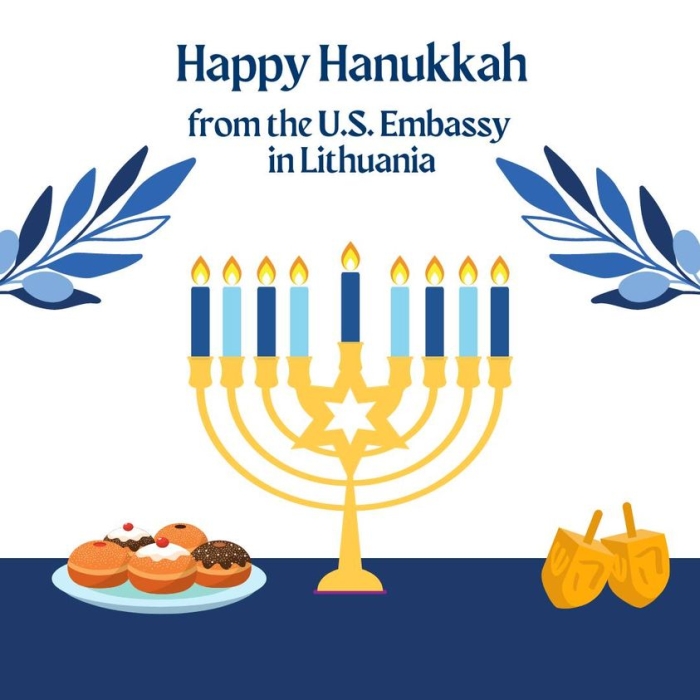
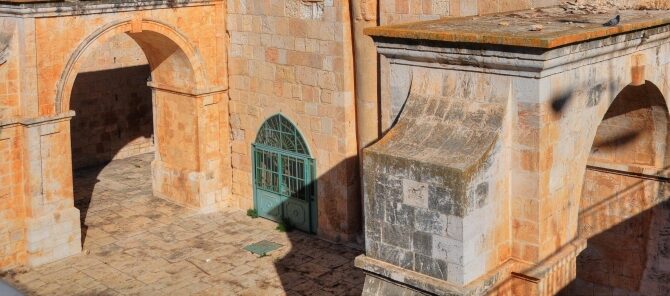
Sabbath Times
The Sabbath begins at 3:34 P.M. on Friday, December 16, and concludes at 4:58 P.M. on Saturday in the Vilnius region.
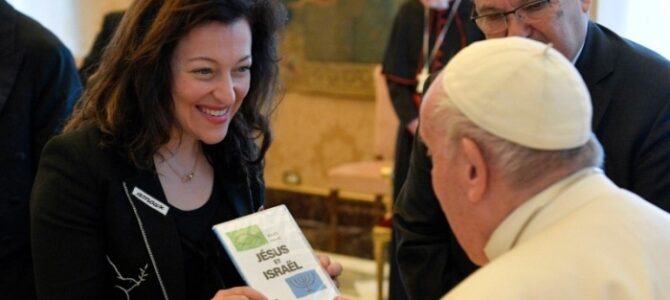
Pope Francis Calls for Return to Judaeo-Catholic Dialogue
Addressing members of the Jewish-Christian Friendship Association of France on December 12, Pope Francis called for a return to dialogue between Catholics and Jews in what he called hostile times with a rise in anti-Semitism and violence against Christians.
ADDRESS OF HIS HOLINESS POPE FRANCIS TO MEMBERS OF AMITIÉ JUDÉO-CHRÉTIENNE DE FRANCE
Consistory Hall
Monday, December 12, 2022
_____________________________________
Dear friends,
I welcome you, members of Amitié Judeo-Chrétienne de France, celebrating the 75th anniversary of its founding.
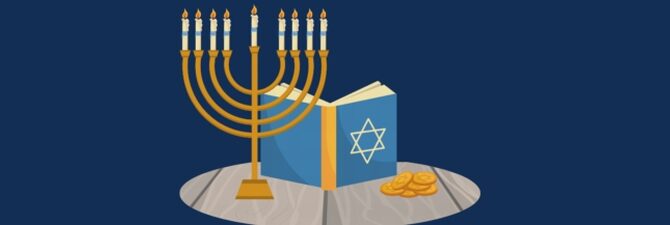
Community Hanukkah Events
In addition to all the other events already announced, the Lithuanian Jewish Community is offering a walking tour of Jewish Vilna with guide Viljamas Žitkauskas and an Israeli dance marathon with Rikudim.
The tour begins at 2:00 P.M. on Saturday, December 17, meeting at the bell tower at the Arch-Cathedral in Vilnius. Program: Tour, avdala ceremony, dinner at the Bagel Shop Café, performance by the children’s section of the Fayerlakh Jewish song and dance ensemble. Registration required. Send an email to zanas@sc.lzb.lt or call +37067881514 on weekdays between 10:00 A.M. and 6:00 P.M.
The Rikudim Israeli dance marathon will be held in the Jascha Heifetz Hall at the Lithuanian Jewish Community in Vilnius from 11:00 A.M. to 3:00 P.M. on Sunday, December 18. To register send an email to Julija at Juliradv@gmail.com.

Hanukkah 5783/2022
Hanukkah begins Sunday evening, December 18, 2022, and continues through Monday, December 26, 2022. Hanukkah is the eight-day Jewish wintertime “festival of lights” celebrated with a nightly menorah lighting, special prayers and fried foods. The first candle will be lit on Sunday evening on the menorah candelabrum, also known as the hanukiya, in Jewish homes around the world. To learn more about this holiday, click here.
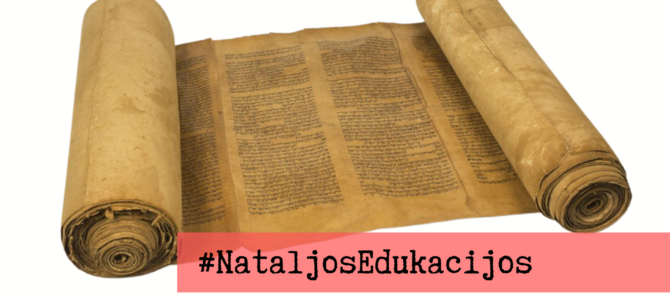
The Ten Commandments in Judaism
Natalja Cheifec invites you to a lecture on the meaning of the Most High’s Ten Commandments, including what punishment faces those who violate them, the significance of the eighth commandment “Thou shalt not steal,” whom Judaism considers a murderer, which violations of the Ten Commandments cannot be redeemed, and other topics.
The lecture will take place via internet at 5:30 P.M. on Wednesday, December 14. To access the zoom platform for the lecture, register at https://bit.ly/3K73kEE.

Happy Hanukkah Greetings
Dear readers,
Lithuanian Jewish Community chairwoman Faina Kukliansky and Vilnius Jewish Religious Community chairman Shmuel Levinas wish everyone an excellent and happy Hanukkah holiday.
“I wish light, peace and happiness in everyone’s hearts, and invite you to attend the lighting of the Hanukkah lights at 7:00 P.M. on Monday, December 19, at the Choral Synagogue, Pylimo street number 39, Vilnius,” chairwoman Faina Kukliansky said.
Hag Hanukkah sameakh!
Faina Kukliansky, chairwoman
Lithuanian Jewish Community
Shmuel Levinas, chairman
Vilnius Jewish Religious Community

Family Sabbath
You and your family are invited to a Sabbath celebration under the tenets of progressive Judaism in the run-up to Hanukkah, the holiday of light and miracles, at 6:30 P.M. on Friday, December 16. The prayer service will be held on the third floor of the Lithuanian Jewish Community at Pylimo street no. 4 in Vilnius followed by kiddush at 8:30 P.M. at the Bagel Shop Café at the same address. The Sabbath ceremony and Sabbath dinner will be followed by a Hanukkah surprise. To register, write viljamas@lzb.lt or call +37067250699.

Hanukkah in Israel
The Lithuanian Jewish Community and the Israel Agency Sokhnut’s Lithuanian office invite you to a Hanukkah celebration and workshop called “Hanukkah in Israel” at 6:00 P.M. on December 15 at the Lithuanian Jewish Community, Pylimo street no. 4, Vilnius. Program:
•Education in Israel: from kindergarten to university, by Konstantin Shveibish from Israel;
•First steps in Israel, buying and renting real estate, attorney Sabina Shternin from Israel;
•Working in Israel, Oleg Dobkin from Israel,
•Questions from the audience;
•Hanukkah treats.
The event is free. For more information write info@ystreet.lv or call +3706998839.
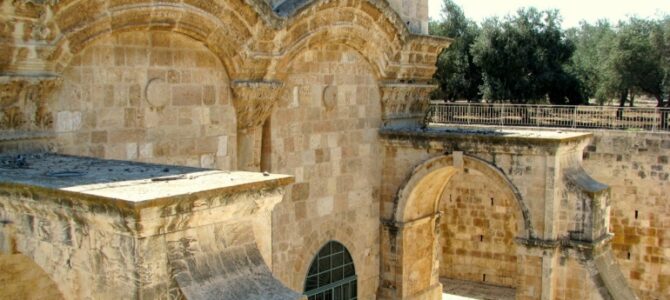
Sabbath Times
The Sabbath begins at 3:35 P.M. on Friday, December 9, and concludes at 4:57 P.M. on Saturday in the Vilnius region.

Happy Birthday to Algirdas Davidavičius
A very happy birthday to Algirdas Davidavičius. We wish you the greatest success in your studies and endeavors. Mazl tov. Bis 120!
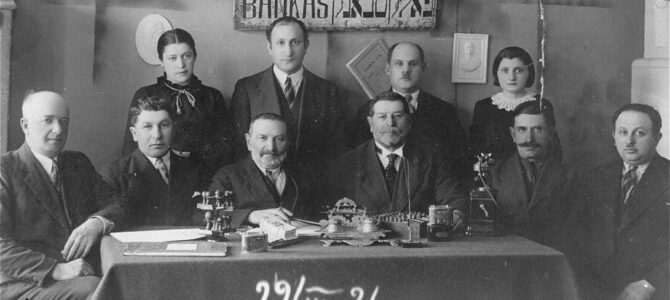
World Jewish Restitution Organization Welcomes Lithuanian PM’s Proposal for Holocaust-Era Property Restitution
The proposed legislation provides €37 million as symbolic compensation for private property expropriated during the Holocaust and addresses heirless Jewish property.
New York, NY, November 20, 2022–The World Jewish Restitution Organization (WJRO) welcomes legislation introduced by Lithuanian prime minister Ingrida Šimonytė addressing restitution claims of Holocaust victims. The new legislation being proposed by the government would provide €37 million as symbolic compensation to private claimants and to the Lithuanian Goodwill Foundation with respect to heirless Jewish property.
Prime minister Šimonytė’s proposal is an important step to providing a measure of justice to Lithuanian Holocaust survivors and their families for the horrors they suffered during World War II and its aftermath. We look forward to the opportunity to review this new legislation which would continue the process of property restitution and support Jewish life in Lithuania.
Over a decade ago following intensive negotiations with the Lithuanian Jewish Community and WJRO, the Lithuanian parliament, the Seimas, passed legislation to pay €37 million in compensation for former Jewish communal property. This payment represented only a partial value of the properties, but it provided much needed funds to support Jewish communal life in Lithuania, restored several Jewish heritage sites and offered modest payments to needy survivors.
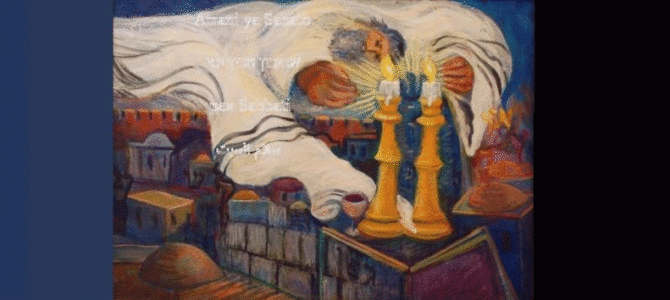
Sabbath Times
The Sabbath begins at 3:39 P.M. on Friday, December 2, and concludes at 4:59 P.M. on Saturday in the Vilnius region.
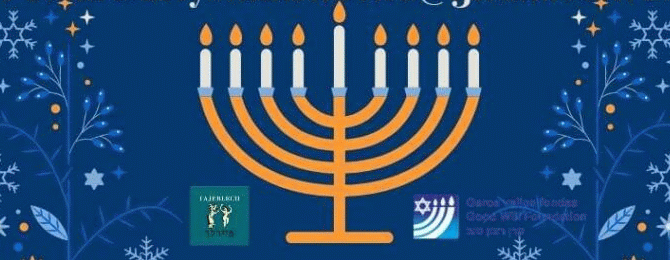
Celebrate Hanukkah with Fayerlakh
Celebrate Hanukkah with a Fayerlakh concert and a holiday meal at the Natali restaurant at 5:00 P.M. on December 18. The restaurant is located at Žalgirio street no. 92 in Vilnius. Tickets cost 35 euros for adults and 20 euros for children aged 4 to 12. To register contact Ilya by telephone at +37065127777 or write Larisa an email at larisa.vysniauskiene@gmail.com.
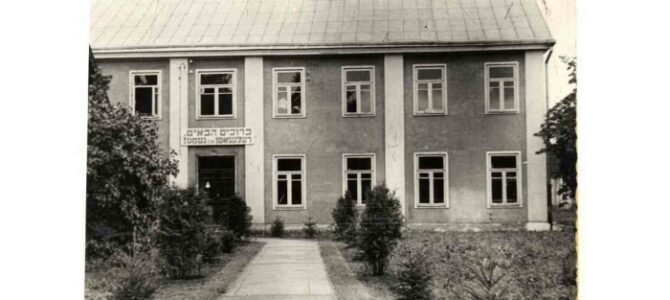
Split Identity: Jewish Scholarship in the Vilna Ghetto
Photo: Exterior of YIVO building in Vilnius, ca. 1933. Courtesy YIVO.
by David E. Fishman
ABSTRACT
In this essay David Fishman draws a comparison between yidishe visnshaft, or Jewish studies scholarship, and Judenforschung, the Nazi field of anti-Semitic Jewish studies used to justify the persecution and extermination of Jews in scientific terms. He examines the work of Zelig Kalmanovitch, who had been a well-known scholar and co-director of YIVO before World War II, during the time when he was forced to produce scholarship as a member of the Jewish slave labor brigade assigned to the Einsatzstab Reichsleiter Rosenberg (ERR) in Vilna. Fishman notes the remarkable scholarly accomplishments Kalmanovitch was able to achieve in a time of enormous adversity. He also demonstrates several junctures in which Kalmanovitch, a meticulous scholar, omitted facts or altered scholarship in order to save lives. These dual impulses of preserving historical truths about Jewish communities and a willingness to obscure facts over which people could be killed contribute to Fishman’s assessment that Kalmanovitch’s scholarship emerged from erudition, love and dedication to the Jewish people about whom he wrote, the very opposite of the purposes for which his scholarship was obtained by his Nazi slave masters.
܀
On June 16, 1942, Herbert Gotthardt, a staff member of the Einsatzstab Reichsleiter Rosenberg (ERR) in Vilna, instructed Zelig Kalmanovitch to prepare an essay and bibliography on the Karaïtes. Kalmanovitch, a well-known scholar and co-director of YIVO before the war, was a member of the Jewish slave labor brigade assigned to the ERR which segregated Jewish and other books, manuscripts and documents into two categories: valuable items to be sent to Germany, and valueless items to be destroyed. The former YIVO co-director was an expert bibliographer in this work brigade, nicknamed the paper brigade, based in the YIVO building at 18 Wiwulskiego Street. The brigade was headed by librarian Herman Kruk and consisted of twenty physical laborers and twenty intellectuals, including the Yung-Vilne poets Abraham Sutzkever and Szmerke Kaczerginski.
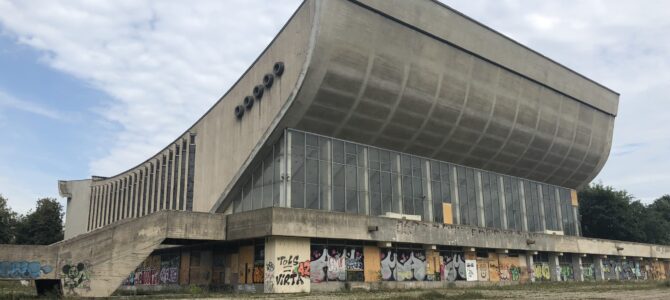
Lithuanian PM Says Plans for Litvak Museum at Sports Palace Bogged Down
Lithuanian prime minister Ingrida Šimonytė told Baltic News Service the idea to establish either a museum or a memorial dedicated to the history of the Litvaks at the Vilnius Palace of Sports complex could turn out to be a long and difficult process.
“It’s on-going, but in order to create a truly meaningful and thus memorable site about the Jews of Lithuania, we’ll have to work hard. The commission will select ideas to be adopted by consensus,” she said.
She cautioned decision-making on the concept could become bogged down and generally difficult. She said this commission will include academics, rabbis, historians and others from Lithuania and other countries and is scheduled for formation by the end of 2022. The idea since 2015 when the Lithuanian state privatization bank Turto bankas acquired the property has been to turn the Palace of Sports built in 1971 and now falling into ruin into a conference center. Different Jewish groups have opposed that plan because the Palace of Sports was built inside the old Jewish cemetery in Vilnius.
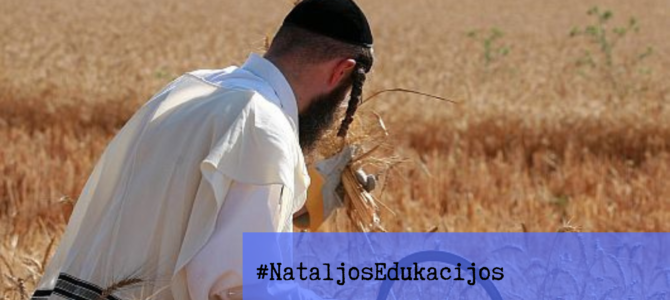
Lecture on Judaism’s View of Vegetarianism
Natalja Cheifec will deliver a lecture on Judaism’s view of vegetarianism followed by a discussion of whether this is a characteristic Jewish tradition via internet at 5:30 P.M. on November 30. Register to receive the zoom program login credentials here: https://bit.ly/3K73kEE
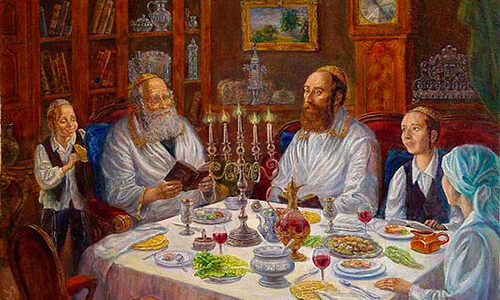
Sabbath Times
The Sabbath begins at 3:45 P.M. on Friday, November 25, and concludes at 5:04 P.M. on Saturday in the Vilnius region.
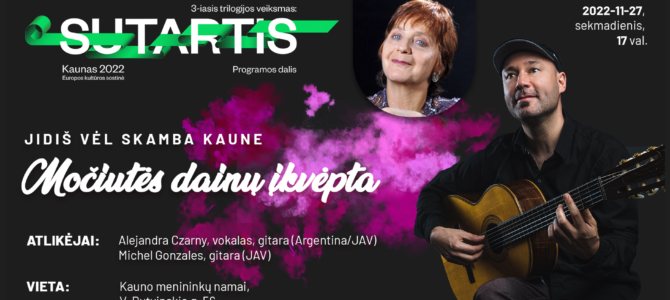
Yiddish Concert in Kaunas
The Kaunas Jewish Community invites you to their concert “Yiddish Heard Again in Kaunas: Inspired by Grandma’s Songs” at 5:00 P.M. on Sunday, November 27 at the Kaunas Artists’ House located at V. Putvinskio street no. 56 in Kaunas.
Alejandra Czarny of Argentina and more recently the United States with firm family roots in Kaunas will sing accompanied by Michel Gonzales on guitar, including Litvak Yiddish from different periods and Yiddish songs from Argentina and South America. Besides singing Yiddish her entire life, she also has her own radio program and is a cantor for synagogues located in South Florida, where she lives.
The concert is free and open to the public, but prior registration is required by filling out the form here:

